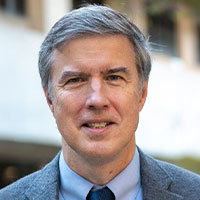 Dispatches
DispatchesJP Leskovich is a rising 3L at the University of Pittsburgh School of Law and JURIST’s News Managing Editor. He filed this dispatch from Phoenix. This is the second in a series of dispatches he’s filing as an embedded reporter for JURIST at the Model Constitutional Convention sponsored by the Center for Constitutional Design at ASU Law.
Student delegates at the Model Constitutional Convention being held at Arizona State University’s Sandra Day O’Connor College of Law this Memorial Day weekend debated 20 proposed amendments to the US Constitution in their sessions Saturday.
The proposals covered a range of topics, including environmental protection, national service, future constitutional amendments, court reform, impeachment, gun control, electoral campaign periods, term limits, lifting the cap on the number of representatives in the House of Representatives, the right to marry, limiting presidential pardon power, prohibiting political gerrymandering, instituting restorative justice, abolishing death-qualified juries, Congressional representation for the territories, codifying tribal sovereignty, restricting eminent domain, restricting investment for members of Congress, and prohibiting discrimination based on sex and gender.
Contrary to the first day of the Convention, where we deliberated in smaller committees, the whole Convention—all 110 of us serving as official delegates—debated these amendments in plenary sessions. This resulted in wide-ranging debates on these topics, with heated but constructive conversation about our constitutional future. We were governed by a modified Roberts Rules, which provided us with structure so we could get things done in the time allotted (granted, it did take us nearly 8 hours!).
In addition to debating the proposals as written, we introduced and voted on a number of amendments to the proposals. This allowed the Convention to express its democratic will and change the proposals. For example, the Equal Rights Amendment was amended to include “sex, gender identity, and sexual orientation,” instead of just “sex.” There were a number of moments where we had to call “division,” which required the chair to count each of the votes. The fact that we need to call “division” so many times showed how contentious many of these amendments were and how difficult it can be to reach a consensus.
One of the first proposals that we discussed was one that would enshrine tribal sovereignty in the US Constitution. Tribal nations in the US are sovereigns, but their sovereignty is often infringed on. This proposal would codify the current status of Indian law in the US to protect tribal sovereignty from Supreme Courts that may not understand the intricacies of Indian law and therefore limit tribal sovereignty.
“Historically, the Supreme Court is not good at doing Indian law,” said Crispin South, a Choctaw law student at Arizona State University who represented Oklahoma and introduced the proposal. “I think Justice Brennan once called Indian law cases ‘chicken shit’ cases.” He pointed to Montana v. US and Oklahoma v. Castro-Huerta, saying that “those cases really for no reason abrogated the sovereignty of tribal nations with very feeble justification.” Therefore, he said, this proposed amendment is necessary to “right some precious wrongs and create a firewall for the current Indian law paradigm.”
During debate, delegates expressed support for recognizing tribal sovereignty and treating tribal nations as equals. As the delegate representing Wisconsin, I emphasized that there are 11 federally recognized tribes in the state and that constructive government-to-government relations are critical to ending the long chain of broken promises and broken treaties. South said he felt good about the debate:
I think it went well. The one bit of opposition we did get was requiring tribal nations to adopt the US Bill of Rights and I think Congress has really already done its job in enacting the Indian Civil Rights Act in that respect. So I don’t think it would be wise at this point to constitutionally require that the Bill of Rights be incorporated against tribes.
Another proposal that received considerable debate was giving the territories full voting rights in Congress. There seemed to be widespread support, with some delegates agitating to provide the territorial delegates to the Convention the ability to vote this weekend. Some expressed concerns about granting territories with small populations two Senators.
I spoke with Rafael Montero, who was a delegate representing Colorado but is from Puerto Rico, about territorial representation and what it was like to hear people debate his own rights. “I felt the lack of information in regards to the territories and their political status, especially in regards to taxation and how taxation works in relation to how the government already has power over the territories.” He went on to say that, “on the other hand, there were people that I felt very grateful for and in solidarity with for supporting and advocating for those rights.” He emphasized that it’s important for territories to have voting representation in Congress because they are already being governed by the federal government and the President.
There were some more contentious amendments proposed, like one that would prohibit discrimination on the basis of sex and gender. Some more conservative delegates expressed concerns about codifying abortion rights and transgender rights. And some of the women delegates noted that it was mostly men expressing opposition. This was definitely the most tense and contentious debate, but it still remained mostly respectful and productive.
In my first dispatch for this Convention, I expressed optimism that we could be a beacon for a new and more just constitutional order. After a day of debate, I am still optimistic that young Americans can build a better democracy, but that optimism is much more tempered and cautious. The threshold is high, and it is hard to build a broad enough coalition in a nation so divided. We are voting today, so we shall see.
Still, the fact that so many US law students and undergraduates gathered to discuss our constitutional future shows that there is a critical mass of young people that are hungering for democracy to work better.


